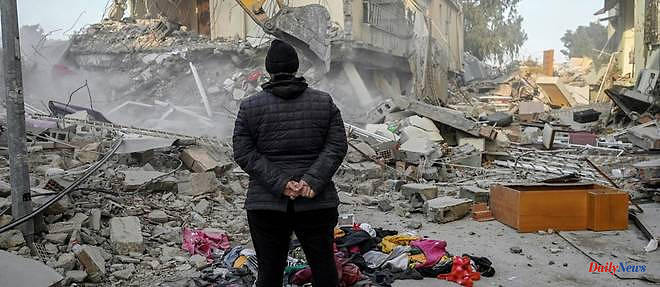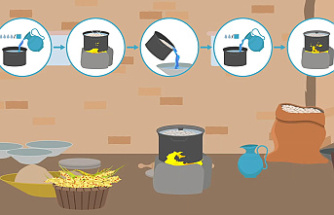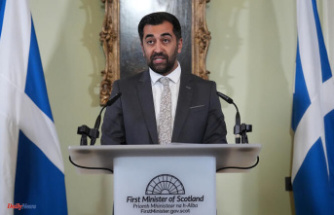In addition to devastating southern Turkey and the lives of millions, the February 6 earthquake revealed the limits of centralized power promoted by Recep Tayyip Erdogan.
The Turks discovered with bitterness that it had taken days for help to reach the heart of the disaster, leaving the survivors abandoned, desperately trying to free their loved ones with their bare hands, in the cold, without help or food.
The powerful Turkish army was not immediately mobilized as reinforcements, the government, to keep control, preferring to entrust all operations to Afad, the public disaster management body, yet overwhelmed by the scale damages.
The Head of State, Recep Tayyip Erdogan recognized "gaps" in the organization of relief while blaming the enormity of the tremors (7.8, in urban areas and in the middle of the night).
No one could have done better, he said.
More than 36,000 lifeless bodies were removed from the rubble eleven days after the disaster and this toll will have to be revised upwards, probably doubled, according to the UN.
"Centralization affects all institutions in Turkey, including those that should not be, such as Afad," said Hetav Rojan, disaster management adviser in Denmark who follows Turkey closely.
For this expert, this hypercentralization of power has hampered the deployment of aid to the most affected regions - sometimes even that of foreign teams. The authorities have tried to exclude the other actors on the ground.
"For an effective relief management, it is necessary on the contrary to mandate local teams with local means", estimates Mr. Rojan.
Social networks are overflowing with testimonies from the many volunteers who rushed to help their fellow citizens and found themselves forced to wait for authorizations or equipment that were slow in coming.
Even crane operators who offered their help, so necessary for relief, had to wait for Afad's agreement to deploy.
AFP journalists witnessed altercations between volunteers from an NGO and representatives of Afad in Elbistan, in the province of Kahramanmaras, which was sorely tried in the freezing cold of -15C° at night.
"We started to work on this rubble when Afad had discouraged us from doing so. When we finally could hear the voice of a living person, the Afad teams took us away and took ownership of our work. “, complained one of the volunteers who did not wish to give his name.
Murat, 48, who was waiting for news of his relatives under the rubble of Kahramanmaras witnessed a similar scene.
“When miners from Zonguldak (on the Black Sea) located a living person under the rubble, they were pushed and people who wanted to appear in front of the cameras took their place,” he says.
The Ahbap charity, set up by famous Turkish singer Haluk Levent, or opposition-led municipalities willing to lend a hand have come under fire from the government for organizing independent aid.
- Controlling the national narrative -
"The necessary will be done against those who try to compete with the state," warned Interior Minister Suleyman Soylu.
The leader of an ultra-nationalist party and member of the ruling coalition, Devlet Bahceli, accused them of wanting to "present the state as incapable".
"The Turkish government is seriously trying to control the national narrative of relief management," Rojan said.
According to Turkish media, an advertising campaign called "Catastrophe of the Century" aimed to convince the Turks that the shortcomings were justified by the incomparable scale of the disaster.
Prepared by an agency close to power, it was withdrawn in the face of an outcry.
"There was no coordination. They were late in the most critical hours. (...) Their inability cost the lives of our tens of thousands of compatriots", hammered the leader of the main party of the opposition Kemal Kilicdaroglu.
For Mr. Erdogan, these criticisms amount to "slander and misinformation to devalue the efforts carried out with dedication".
The two men are brought to face each other if the presidential election, initially announced for May 14, is maintained despite the earthquake - which no one has confirmed or denied at this stage.
In 1999, after the earthquake that struck the north-west of the country, the famous Turkish journalist Mehmet Ali Birand denounced the mediocre management of relief: "Turkey, which prided itself on its greatness and its power, has turned out to be a tiger of paper".
The authorities had since promised that lessons had been learned from the fiasco and the relief organization strengthened.
“It is still early to say whether this attempt to control the narrative will work or not,” says Mr. Rojan.
But, he adds, "it's definitely a political test for Erdogan with the upcoming elections."
16/02/2023 15:32:05 Kahramanmaras (Turquie) (AFP) © 2023 AFP












